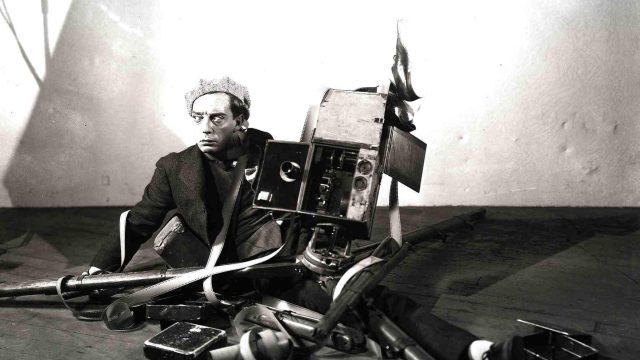This Week, You Will Pull Back the Curtain On:
- A low-rated cop show from the 2000s
- A high-rated block of sitcoms from the 1990s
- What movie music composers don’t want you to know
- The private life of Buster Keaton
- Sexy stuff.
Thanks to our underground sleuths scb0212, Drunk Napoleon, and Casper for contributing. Send articles throughout the next week to ploughmanplods [at] gmail, post articles from the past week below for discussion, and Have a Happy Friday!
The FAR would risk losing its posting license if it didn’t lead off with the oral history of The Shield from Entertainment Weekly. But why no Ronnie?
RYAN: It’s always more fun to write the nasty stuff. A big part of my job was swatting away pitches of, “Here’s a person Vic can kill this episode.” At some point in season 1, I had to say to the writers, “That’s not sustainable — he’s not a serial killer. Even the worst people spend 98 percent of their time not doing evil s—. We’ve got to find balance. How could he in the morning save a drowning baby and risk his life to do so, and in the afternoon steal drugs off a drug dealer?”
For The Reveal, Keith Phipps talks with Dana Stevens about Buster Keaton, the subject of her new book on his career in the silent era and beyond:
His Twilight Zone is almost like a Wizard of Oz story about him coming into the 1960s from the late 1890s. He explores the future and then at the end, with his crazy time travel helmet, he decides, “No, I’m going to go back to my time.” Once again, it’s a sweet story, but it really doesn’t capture the spirit of Keaton, who did want to stay in the future, always wanted to be moving into the future, and was not a nostalgia act. I’m sure he was very happy his movies were being rediscovered and restored by the time he died. But he was not a nostalgic character who wanted to look back and relive the past.
A roundtable at the New Yorker discusses the life and/or death of the sex scene:
Vinson Cunningham: I think porn does loom large here. Alex asked at the beginning, What do we want from sex scenes? At an earlier time, when there wasn’t widespread access to porn, there were entire movies built around: I want you to be bothered the rest of the day, because this film is so fucking hot. But I do think that the proliferation of porn makes us then have to try to be smarter about sex in shows than we necessarily want to be. It’s almost like when [Stephen] Sondheim died, and everybody was talking about his genius. His songs weren’t just songs, they moved the story forward. I can hear that editorial voice in sex scenes now: What is this sex for? And “to make people horny” is not enough, so you have to try to stylize and sort of auteurize the act.
At Vanity Fair, Mark Rozzo busts open the dirty secrets of the film score composition and its legion of often uncredited ghost writers:
“The name brands have had people write their music for 20-plus years.” A veteran Hollywood music supervisor described how it works. “The composers have six or seven projects on the go at any point,” he said, referring to lead composers working in television. “The leader sets the ‘tonal palette’ to get them going. And then the minions do the actual writing.” Let’s say you’re one of these minions—an additional composer or a studio assistant who is allowed to write—and you’re working on the score of a tentpole movie with a major film-music studio. You’re assigned a number of “cues”: bits of the score that you will compose to accompany specific scenes. The lead composer—whose name will go on the final product—has worked up the overall direction. Zimmer calls it “the sketch.” As Devo founder turned film composer Mark Mothersbaugh (Rugrats, The Lego Movie, and four Wes Anderson films) once described it, “You give them themes, you do a rough mock-up, and then those people fine-tune it all.” In some ways, it’s a system that resembles the assembly-line studios of contemporary artists such as Mark Kostabi and Jeff Koons.
And at The Hollywood Reporter Evan Nicole Brown remembers the lineup of Black shows on the UPN and its disappearance as it got swallowed into the CW:
UPN’s Monday night lineup for more than half a decade was “a golden era as it relates to Black presence on TV,” Farquhar says. “When we were shooting Moesha, you used to see all these Black kids who were starring in TV shows come over and hang on the set when they weren’t shooting, and those of us who were older would just remark that they didn’t know how special this was. That this had never happened before in the history of TV, period.”

